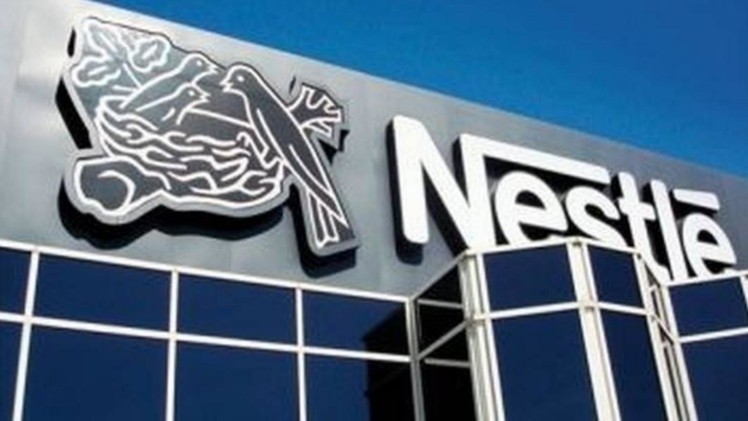
By Godwin Anyebe
In an era defined by climate volatility and the urgent need for local economic empowerment, Nestlé Nigeria is pioneering a comprehensive and deeply integrated approach to agriculture that moves far beyond simple procurement. This is not merely a sourcing strategy; it is a long-term investment in rebuilding Nigeria’s food systems from the ground up, focusing on regenerative health, farmer empowerment, and robust partnerships.
The company’s commitment, encapsulated in its drive to locally source key ingredients, has birthed a series of ambitious projects in 2025. These initiatives—spanning dairy, grain production, and soybean cultivation—are strategically designed to mitigate climate risks, increase farmer income, and guarantee a resilient supply chain for its products, fundamentally Sustaining the Source of Nigeria’s nutritional future.
The Dairy Revolution: From Demonstration to Development Centre
A cornerstone of Nestlé Nigeria’s 2025 agricultural calendar is its decisive move to strengthen the domestic dairy value chain. Recognizing the critical gap in vocational skills and modern farming practices, the company is collaborating directly with the Federal Government to institutionalize training and infrastructure.
The Dairy Technical Skills Development Program is the result of this pivotal partnership with the Federal Ministry of Livestock Development, announced in commemoration of World Milk Day 2025 on June 3rd. The initiative’s core focus is on developing mid-level vocational skills in key areas, including milk production, processing, hygiene, and farm management. This practical, hands-on training is designed to improve both the quality and quantity of milk produced locally, directly addressing a long-standing national challenge.
The launch of this government collaboration was preceded by the significant success of the Dairy Demonstration Farm. Designed as a model to showcase best practices, the farm proved that improved techniques could dramatically increase milk yields, moving production from an average of 1 liter to over 10 liters per cow per day. This success was so compelling that the Minister of Livestock Development, Mukhtar Maiha, extended an invitation to Nestlé to convert the successful demonstration farm in Paikon Kore, Gwagwalada, into a permanent Dairy Training Centre—an invitation the company enthusiastically accepted.
According to Wassim Elhusseini, CEO of Nestlé Nigeria, this collaboration is a “mutual dedication to bridge the gap in mid-level technical skills within the dairy sector to meet the growing demands of the market.”
The foundation for this significant step was laid with the launch of Nestlé’s Dairy Development Project in 2019. Since then, the impact has been substantial:
83 dairy cooperatives established, benefiting over 3,000 milk producers.
Over 1 million liters of raw milk aggregated.
More than 2,000 milk producers trained in best practices.
Infrastructural development, including 19 boreholes and 28 water troughs, to improve water access.
Rejection rates for milk dropped from 12% in 2021 to 5% in 2024, a clear indicator of improved quality.
Average monthly revenue for milk producers has surged from ₦70,000 in 2019 to ₦250,000 in 2024.
This investment in livestock development, which the company has channeled over ₦1.8 billion into, is not just about supporting local farmers; it’s about building a robust, high-quality, and reliable domestic supply base that powers a stronger national economy.
Regenerating the Land: The Climate-Smart Movement
For Nestlé Nigeria, resilience is not just an abstract goal; it is a practical methodology applied to farming. This is best exemplified by its aggressive push into Climate-Smart Agriculture and Regenerative Agriculture (RegenAg), which focuses on enhancing soil health, biodiversity, and ecosystem services.
StreFaS: The Alliance for Climate Resilience
In a landmark commitment to transforming Nigeria’s grain value chains, Nestlé Nigeria, in partnership with AGRA (Alliance for a Green Revolution in Africa) and TechnoServe, launched the Strengthening Farmers’ and SMEs’ Resilience through Climate Smart Grain Production and Accessing the Structured Markets (StreFaS) initiative.
Launched on May 6th, 2025, in Zaria, Kaduna State, StreFaS is a three-year initiative (June 2024 to October 2027) co-funded by AGRA and Nestlé, with a mission to support 25,000 smallholder farmers and eight aggregators across Kaduna and Nasarawa States. The project focuses on the sustainable production of maize, soybean, rice, and sorghum.
Mr. Wassim Elhusseini highlighted the global urgency: “Globally, we aim to source at least 50% of our key ingredients from farmers practicing regenerative agriculture by 2030.” Nestlé’s investment of over $1,000,000 in StreFaS over three years underscores its commitment to establishing regenerative agriculture as the new standard, addressing both environmental and social priorities.
The immediate results have been remarkable. The initiative promotes climate-smart practices that have delivered measurable success, including a 100% increase in yields for some participating farmers, such as Engineer Lawan Abdul, who shared a compelling testimonial at the launch. Beyond boosting productivity, the program connects farmers to formal markets, including Nestlé’s supply chain, ensuring they receive premium prices for their climate-smart produce.
Dr. Rufus Idris, AGRA’s Country Director for Nigeria, noted that the initiative is “core to AGRA’s approach to sustainable and resilient food systems transformation,” while Mrs. Adesuwa Akinboro, Country Director of TechnoServe Nigeria, emphasized that StreFaS is “not just about boosting yields—it’s about regenerating our soils, restoring dignity to farming, and creating a more inclusive and sustainable future.”
The Regenerative Agriculture (RegenAg) Pilot Success
The StreFaS initiative builds directly on the successful Regenerative Agriculture (RegenAg) Pilot for local soybean sourcing, spearheaded by Nestlé’s seasoning brand, MAGGI.
The pilot, launched in 2023 with an investment of over ₦100 million, supported 1,030 soybean farmers in adopting core regenerative practices:
Cover Cropping
Minimal Tillage (Ripping)
Crop Rotation
Use of Hedgerows
These techniques led to healthier soils, improved yields, and stronger farm resilience against climate shocks. The remarkable yield increase of 100% experienced by beneficiary Engineer Lawan Abdul demonstrates the powerful link between ecological health and economic profitability.
Following the pilot’s success, Nestlé announced a major expansion to support 25,000 smallholder farmers across the country in sustainable soybean cultivation. The expanded program aims to produce at least 80,000 metric tonnes of quality grains annually, with an increasing share cultivated through regenerative methods.
Funmi Osineye, Category Manager for Culinary at Nestlé Nigeria, stressed the dual benefit: “Soybean is a key ingredient in MAGGI, and supporting local farmers to grow it sustainably is central to our mission… By equipping farmers, especially women and youth, with regenerative agriculture skills, we are improving productivity today while protecting the land for future generations.”
Quality and Collaboration
Nestlé’s holistic sourcing strategy recognizes that yield and regeneration must be paired with quality control and market access.
The Feed The Future Nestlé Maize Quality Improvement Program (M-QIP), a collaboration with USAID and VEGA, is a dedicated effort in Kaduna State to train farmers specifically on practices that reduce crop contaminants. By focusing on quality standards, M-QIP aims to increase both the yield and, crucially, the quality of maize and soybean, directly boosting farmer incomes by ensuring their produce meets the high standards required by the structured market.
Expert Consensus: A Model for National Success
The scale and depth of Nestlé Nigeria’s engagement have not gone unnoticed by industry experts.
Emmanuel Ogbonnaya, the Chairman of the Nigerian Association of Agricultural Journalists (NAAJ), commended the efforts: “Throughout my years as NAAJ Chairman, I have observed with keen interest what Nestlé Nigeria has been doing in agriculture, and I must say that it’s second to none.
If only other companies can replicate what Nestlé Nigeria is doing in terms of Agriculture, Nigeria will not be only food sufficient but Africa at large.”
Echoing this sentiment, Grace Maliki, a seasoned agricultural expert from Yola, Adamawa State, emphasized that Nestlé’s approach to farmer empowerment is “commendable,” and if other major companies follow suit, the food crisis in Nigeria could be drastically reduced.
In a nation facing complex challenges of food security and climate change, Nestlé Nigeria’s multi-pronged strategy—from the Dairy Training Centre transforming the livestock sector to the StreFaS initiative regenerating grain farmlands—serves as a powerful model. By putting the farmer first and committing substantial investment and global technical expertise, the company is not just sourcing ingredients; it is sustaining the source of economic stability and environmental health for the entire country.
Culled from www.consumersassembly.com



